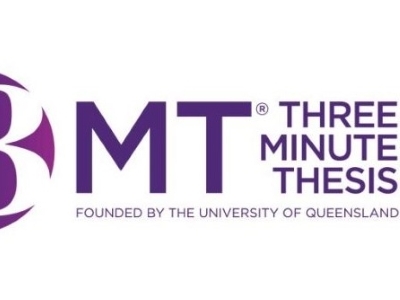This ongoing series is looking at PhD alumni who are doing non-academic jobs. Each person tells their story and provides tips on finding work in the non-academic sector. To read other stories in this series, please visit our Alumni Success Story archive.

In 2012, Joshua Kilberg was the first person to graduate with a PhD from the Norman Paterson School of International Affairs (NPSIA).
Today, he is a Program Officer for biological security at the Global Partnership Program, with Foreign Affairs and International Trade Canada (DFAIT).
He is responsible for a multimillion dollar project aimed at reducing the threat of bioterrorism. “Our team works with other countries and international organizations to develop and maintain safeguards to prevent the deliberate spread of disease all over the world,” says Kilberg.
“Much of what I do is program management – which, for me, is an entirely new set of skills that I’m learning on the job.”
He likes the variety that his job affords. “The best part of my job is figuring out how to make each aspect of a project as efficient and effective as possible. A single project requires a number of steps – negotiating, consulting with scientific and engineering experts, auditing financial reports – to name a few – all of which require asking the right questions, getting advice and making decisions along the way.”
Through his affiliation with Carleton, Kilberg is collaborating with Harvard University on a longitudinal project examining Somali youth radicalization in Canada and the US.
He is also working with Flashpoint Global Partners, a New York-based consulting firm on a project studying online radicalization. And he is teaching evening courses at NPSIA and the University of Ottawa.
Kilberg says he love parts of academia and policymaking and doesn’t think he would be successful in either without the skills and knowledge he learned from his PhD.
“A PhD gives you a highly specialized knowledge base – by the time you’ve defended your thesis, you’re an expert,” says Kilberg. “But a PhD also trains you to learn whole systems and to solve complex problems – these are skills that are useful for any job. The federal public service is an educated workforce and I’d like to think that my PhD helped distinguish my application from others.”
Kilberg’s thesis focused on the effects of organizational structure on a terrorist group’s behaviour and output – so in terms of the counter-terrorism aspects of his current job, Kilberg says that his PhD definitely is a plus. Last year, he was one of the authors of a study on chemical, biological, radiological and nuclear terrorism. “So, my time at Carleton and my collaboration with Carleton since I graduated is important in terms of knowing the public policy background relating to my job,” shares Kilberg.
Kilberg says that NPSIA was committed to developing a PhD degree that prepares students for both academic and public policy careers. “From the courses, to the comprehensive exams, to the prospectus defence, to the thesis – I was pushed hard to do my best.”
For grad students looking for non-academic employment, Kilberg suggests: “Start the groundwork for securing a job well before you graduate. Draw on your network and go out and meet people. It’s tough enough to just finish a thesis, let alone find employment, but you have to remember that the best way to showcase your skills to a prospective employer is to go out there and meet them.”
Tips from other PhD alumni include:
“Work on stuff that really matters in the real world. Keep eyes wide open on latest trends and developments in the field. Be prepared for new challenges!” — Qi Liu
“Besides the obvious method of continuously networking, the other one is discovering how to package your diverse skillset to be of value in the marketplace. I didn’t know the concept of being a data scientist before I started my job search and that my various skills allowed me to do this job. It is through the discussions and interviews that you refine your value proposition. Think of it as both product and market development. Seeing the need and marketing yourself as the solution for it.” –Rod Story
“Network early and often. Your peers and colleagues can provide you with the connections to find that first job. Also, try to best to distinguish yourself from other job seekers. It is a very competitive job market, and novel skill sets and accolades can definitely help grab the attention of hiring committees.” –Kyle Hanson
“Don’t limit yourself by what is typically done. Look into every opportunity that presents itself and you might surprise yourself by what you find.” –Crystal Blais
“If you’re looking for work outside of the academy, be comforted to know that there are many PhDs in non-academic jobs. Be proud of your PhD and use it as a source of confidence.” — Howard Fremeth
“Many opportunities are not posted, so keep in touch with your friends and colleagues, and try to network as much as possible. Your next opportunity may be only a conversation away. Don’t be afraid to approach organizations and let them know what you are able to offer.” — Jeff Gilchrist
Thursday, November 21, 2013 in Alumni Success Stories
Share: Twitter, Facebook



